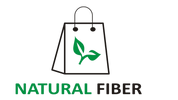When it comes to fighting plastic pollution, small lifestyle changes can have big environmental impacts. Switching from a synthetic bath sponge to a banana fiber loofah might seem minor—but the benefits go far beyond your shower.
In this article, we’ll explore the life-cycle analysis (LCA) of a banana fiber loofah compared to traditional synthetic options, showing how it dramatically reduces plastic waste while supporting a sustainable, circular economy.
♻ 1. The Problem with Synthetic Loofahs
Synthetic loofahs are made from nylon or polyester—both petroleum-based plastics. From production to disposal, they cause harm at every stage:
-
Production: High carbon footprint due to fossil fuel extraction and energy-intensive manufacturing.
-
Use: Shed microplastics into waterways during showers.
-
Disposal: Remain in landfills for hundreds of years.
On average, a household replaces synthetic loofahs every 1–3 months, generating thousands of tons of non-biodegradable waste annually.
🌱 2. The Banana Fiber Loofah Life-Cycle Advantage

The banana fiber body loofah follows a radically different—and far cleaner—path.
Life-Cycle Stages:
A. Raw Material
-
Sourced from banana plant pseudostems, an agricultural byproduct.
-
No trees cut down, no extra farming required.
-
Zero chemical processing for fiber extraction.
B. Manufacturing
-
Handmade banana fiber loofah crafted by rural artisans using low-energy tools.
-
Minimal carbon emissions compared to energy-heavy plastic molding.
C. Use Phase
-
Functions as a natural exfoliating sponge, removing dead skin without releasing microplastics.
-
Naturally antimicrobial—less frequent replacement compared to synthetic sponges.
D. End of Life
-
100% biodegradable body scrubber.
-
Can be composted at home, returning nutrients to the soil.
🌍 3. Quantifying the Impact: LCA Comparison
| Environmental Factor | Synthetic Loofah | Banana Fiber Loofah |
|---|---|---|
| Carbon Emissions (per unit) | ~0.5–1.0 kg CO₂e | ~0.05–0.1 kg CO₂e |
| Microplastic Pollution | High | None |
| Biodegradability | ❌ No | ✅ Yes |
| Renewable Resource Use | ❌ No | ✅ Yes |
| Waste Reduction | Minimal | Significant |
By replacing just 1 million synthetic loofahs with banana fiber alternatives, we could eliminate over 200 metric tons of plastic waste annually.
💚 4. Beyond the Numbers: Social Sustainability
Each eco-friendly bath loofah sold by Natural Fiber Company supports:
-
Fair wages for rural women artisans.
-
Local economic empowerment in farming communities.
-
Circular economy innovation using agricultural waste.
This means your purchase has both environmental and social benefits—something synthetic products can never match.

0 comments